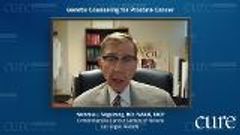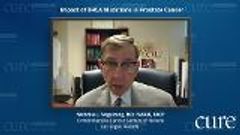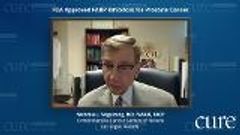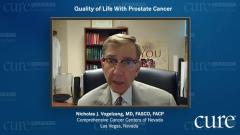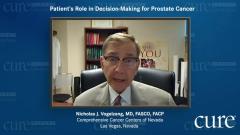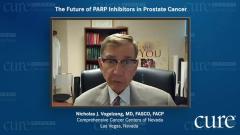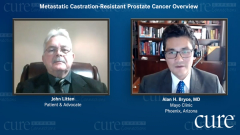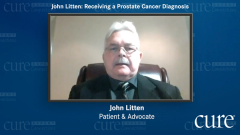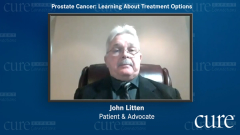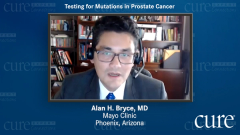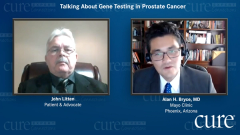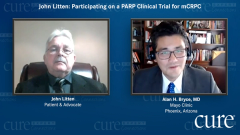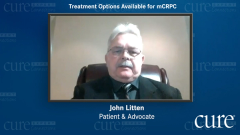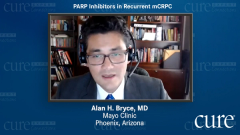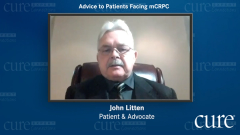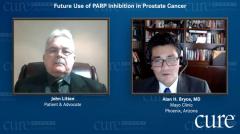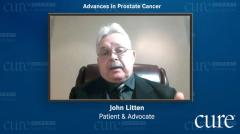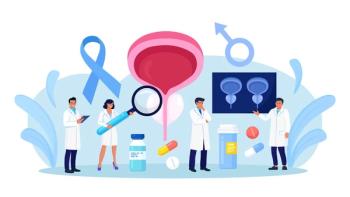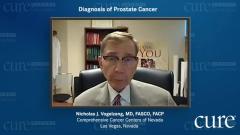
Advances in Prostate Cancer
Episodes in this series

Alan H. Bryce, M.D.: How do you feel when you hear about these advances, knowing that you participated and can see where the field is going?
John Litten: It excites me because, just last week when I was in your office after my regular series of blood tests and scans, that was my question to you. When and if in fact this does stop working for me, is there anything else out there new for me? You said, “Yeah, the next generation of treatments is just exploding. We have all kinds of things to talk about.”
It’s encouragement. The thing you always have to hang on to as a patient is hope. You’ve got to have hope, and you’ve got to listen for the encouragement because there are so many new options out there. And you need to find the ability to trust your oncologist and know that he is trying to lead you down the direction of, as Dr. Bryce says, putting him out of work—hopefully finding a cure for this prostate cancer. Honestly, I encourage every one of you to get into depth of what it is that’s going on with your particular type of cancer. Talk to your oncologist. Get as much information as you can. It will put your mind at ease. It will allow you to get a lot more sleep at night.
Alan H. Bryce, M.D.: That’s wonderful. Thank you for that, John. It’s always a pleasure to talk to you. The audience probably understands by now—you and I have been doing this so long that we’ve become buddies. Right?
John Litten: Yes, I agree.
Alan H. Bryce, M.D.: Any last words of advice for the people listening, the caregivers as well as the patients? You’ve already given some great advice, but any last thoughts?
John Litten: For the caregivers, just keep up the support. Do all the encouraging that you can. To the patients, trust your oncologist. Don’t be afraid of trying something new, finding what it is that’s out there that will work for your cancer. Because the worst thing you can do is be fearful of the disease. You must keep a positive attitude. You have to move forward every day, and your attitude has an awful lot to do with it.
Alan H. Bryce, M.D.: Very good. Thank you, John, for your friendship over the years and for your advocacy for patients. I also want to thank the people watching and the team at CURE® for putting this together. For the patients and caregivers, thank you for your encouragement, for your courage, and your ongoing commitment to helping us find a cure for prostate cancer. Please help put me out of business. That’s the goal. No more oncologists. That’s the world we want to live in.
Transcript Edited for Clarity

